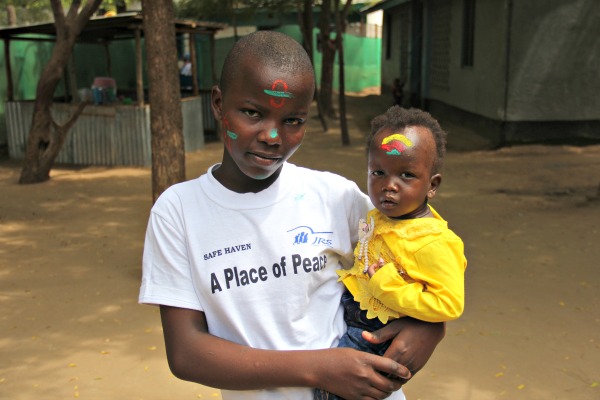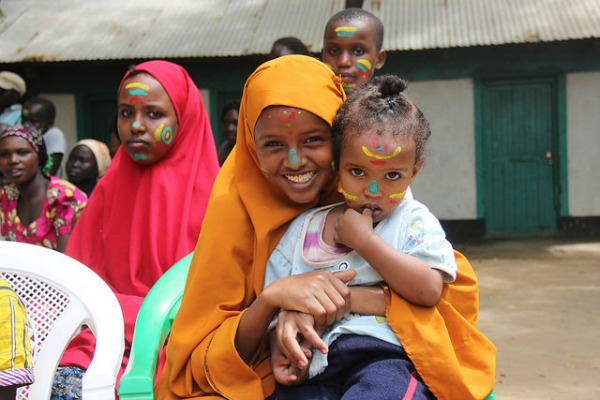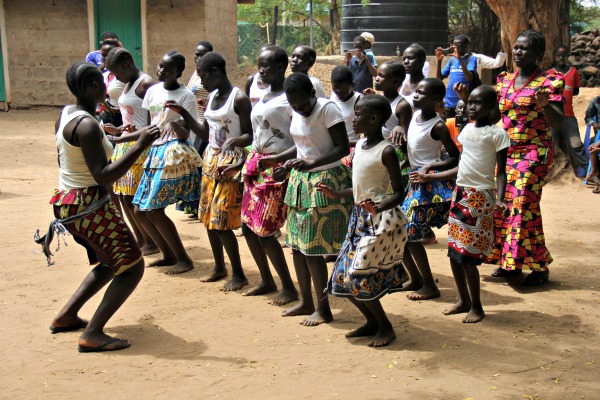
Children in the context of a refugee camp, an urban setting, or any other location around the world fall into a category of individuals who are extremely vulnerable. Simply looking at their status in the world will identify that. They are unable to make decisions on their own, and have to depend on others in order to survive. All individuals need psychosocial support for their wellbeing. Some children might need additional psychosocial care to improve their quality of life if they have experienced trauma, have lived through a disaster, or are not receiving adequate support from a caregiver.
Going through these kinds of stressful events can stunt the proper psychological growth of a child, halting normal lifespan development. It is important to note that although some individuals may become stunted, others with higher resilience may not experience these events in the same way.
Children can be at risk of being hurt or exploited during traumatic and stressful events because of stress that adults are experiencing. They might also find it difficult to access services from agencies or individuals because of a lack of knowledge about services provided, simply not knowing their human rights, or even who/how to ask for assistance.

Kakuma Refugee Camp. (Angela Wells/JRS)
Empowerment through psychosocial programming is one way of working with children who have been affected by stressful events. Most interventions tend to be Western in their approach, and may not be suitable for all cultures. Culturally sensitive interventions should be utilized when possible.
Looking at the children’s’ cultures and pulling from them will allow the approaches to be ingrained into their normal patterns and habits, rather than being something from outside of their sphere of understanding. Asking and incorporating feedback from children and individuals in specific programming is a simple way to further understand and work with cultural norms.
Psychosocial health looks at the whole person, identifying the importance of a person’s mental, emotional, social, and spiritual well being. Psychosocial support (PSS) programs should be incorporated into larger systems when possible. Some examples might include integrating them into healthcare services, social services, government systems, religious organizations, schools (both formal and informal), community support programming, and trainings and workshops.
Incorporating PSS into other services allows more people to be reached with this knowledge, and aim to be more inclusive. (WHO, 2007) Incorporating psychosocial care, and utilizing child protection principles, into these systems allows for inclusive care, and to increase a child’s capacity to cope.

Kakuma Refugee Camp. (Angela Wells/JRS)
So how can individuals bring in a PSS approach into their work with children? Looking at the components of PSS, there are many opportunities to include PSS into work with vulnerable children. Knowing that not all children are impacted by stressful events in the same way, it is important to look at individualized care of children. Every individual has their own set of specific needs, wants, and desires. It is easy as an adult to lump all childcare together in the same way, not taking into account the importance of the individual.
One might look at a group of five to six year olds and want to care for them in the same way. This would be a disservice to the treatment and care of each child. They all have their own histories and identities that they carry with them, and will not respond to all PSS programming in the same way. Each individual needs to be looked at as a single entity. Each child, regardless of their place in the world, should be given individualised care. Look at their own mental, emotional, social, and spiritual well-being and capacities in order to identify the best way forward for their care.
Listen to them, and allow them to have their own voices.
Julie Krause has a Master’s degree in Art Therapy (2015) from The School of The Art Institute of Chicago. She is currently working with the Jesuit Refugee Service in Kakuma Refugee Camp in northwestern Kenya as Mental Health and Counseling Coordinator. The programme is supported by the Irish Jesuit Missions.
Author: Julie Krause, Jesuit Refugee Service, November 2016

